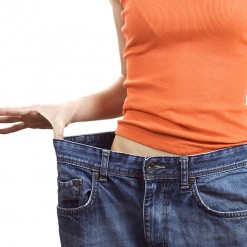

A common misconception of vegans is that they are people with small appetites who are strongly against animal cruelty. Although a lot of vegans do feel passionately about animals and the entire planet in general, many of them choose to follow a vegan diet to improve their overall health and to prevent major diseases. While there are certainly health benefits that come with a vegan diet, that are some risks as well. It is important to understand both before you decide to make a drastic change to your diet.
Most of the health benefits that come with a vegan diet involve cutting out food that is not good for you. Meats and dairy products carry a significant amount of saturated fats. Eliminating these saturated fats from your diet improves your health tremendously and helps prevent the risk of cardiovascular disease. Most vegan diets are high in fiber, which leads to healthier bowel movements. Fiber also helps fight against colon cancer. A huge staple of vegan diets is, obviously, vegetables, which are high in antioxidants. Antioxidants are one of the best ways to protect your body from diseases such as cancer. Food that comes from an animal is also high in cholesterol. Eliminating all animal products from your diet also eliminates all dietary cholesterol, which will help your heart in the long run.
 While there are certainly benefits to switching to a vegan diet, there are some considerations as well. Vegans tend to be deficient in many important nutrients. Just like some nutrients are only found in plants (like Vitamin C), others are only found in animals, like Vitamin B12. For vegans, Vitamin B12 is the most important nutrient to focus on, because B12 deficiency is extremely common in vegans. Vegan diets also limit the amount of protein your body consumes. Protein is important because it contains essential amino acids and helps promote healthy bones and muscle growth. Vegans will have to purchase protein powder or other supplements to ensure they are getting enough in their diet. While many vegans cut out processed vegetable oils, refined carboyhydrates, and added sugars, there are still many snacks and treats available to them. Thus, if you are switching to a vegan diet to lose weight, you need to address all areas of your diet. Eliminating meat and dairy means nothing if you snack on junk food instead of eating fruits and vegetables. Ideally, if you are thinking about switching to a vegan diet, consult your doctor or nutritionist about your plan. They can help you come up with a meal plan to follow to ensure you are still getting all the nutrients your body requires.
While there are certainly benefits to switching to a vegan diet, there are some considerations as well. Vegans tend to be deficient in many important nutrients. Just like some nutrients are only found in plants (like Vitamin C), others are only found in animals, like Vitamin B12. For vegans, Vitamin B12 is the most important nutrient to focus on, because B12 deficiency is extremely common in vegans. Vegan diets also limit the amount of protein your body consumes. Protein is important because it contains essential amino acids and helps promote healthy bones and muscle growth. Vegans will have to purchase protein powder or other supplements to ensure they are getting enough in their diet. While many vegans cut out processed vegetable oils, refined carboyhydrates, and added sugars, there are still many snacks and treats available to them. Thus, if you are switching to a vegan diet to lose weight, you need to address all areas of your diet. Eliminating meat and dairy means nothing if you snack on junk food instead of eating fruits and vegetables. Ideally, if you are thinking about switching to a vegan diet, consult your doctor or nutritionist about your plan. They can help you come up with a meal plan to follow to ensure you are still getting all the nutrients your body requires.
Because vegans are limiting themselves in terms of certain nutrients, such as Vitamin B12, they usually need to take supplements. As a general rule, all vegans should take Vitamin B12 supplements, because you simply cannot get enough B12 by eating mushrooms grown in B12-rich soil or unwashed organic produce. The recommended dose is 25 to 100 mgs a day. Most vegans should also consider taking Vitamin D supplements as well. Other supplements recommended for vegans include calcium, iron, and iodine.
